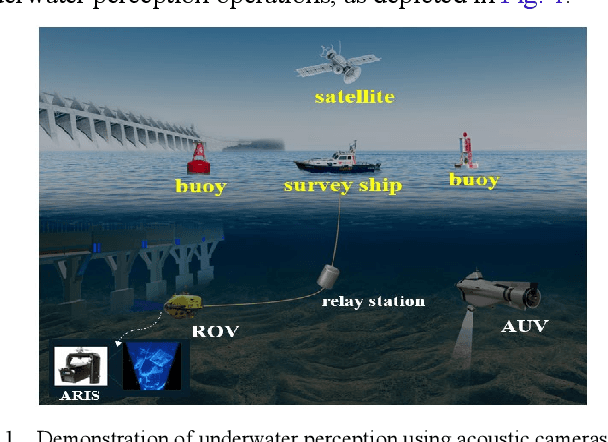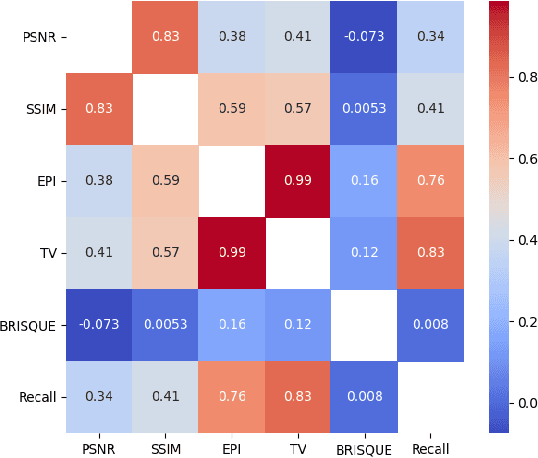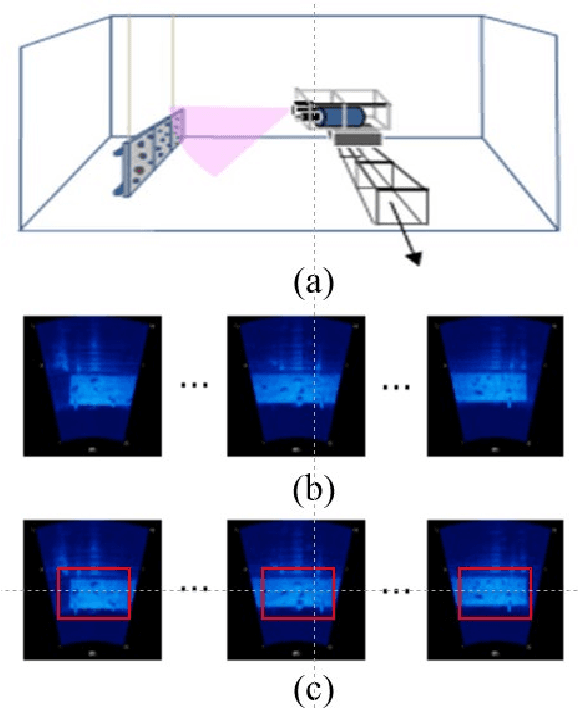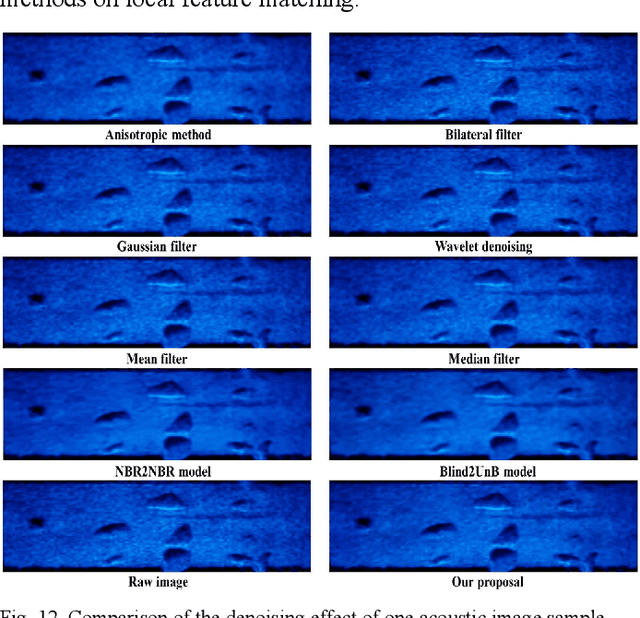A Self-Supervised Denoising Strategy for Underwater Acoustic Camera Imageries
Paper and Code
Jun 05, 2024



In low-visibility marine environments characterized by turbidity and darkness, acoustic cameras serve as visual sensors capable of generating high-resolution 2D sonar images. However, acoustic camera images are interfered with by complex noise and are difficult to be directly ingested by downstream visual algorithms. This paper introduces a novel strategy for denoising acoustic camera images using deep learning techniques, which comprises two principal components: a self-supervised denoising framework and a fine feature-guided block. Additionally, the study explores the relationship between the level of image denoising and the improvement in feature-matching performance. Experimental results show that the proposed denoising strategy can effectively filter acoustic camera images without prior knowledge of the noise model. The denoising process is nearly end-to-end without complex parameter tuning and post-processing. It successfully removes noise while preserving fine feature details, thereby enhancing the performance of local feature matching.
 Add to Chrome
Add to Chrome Add to Firefox
Add to Firefox Add to Edge
Add to Edge